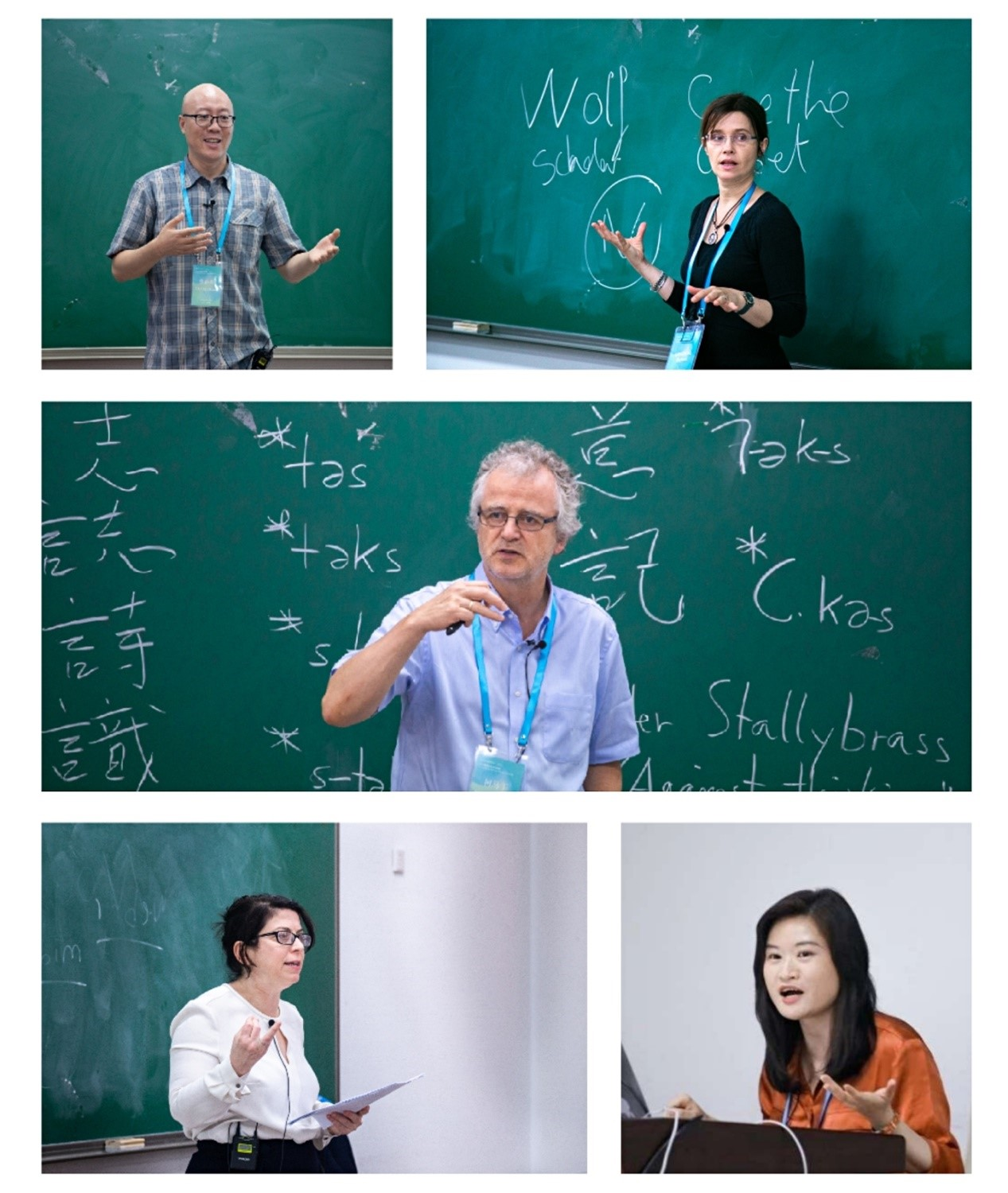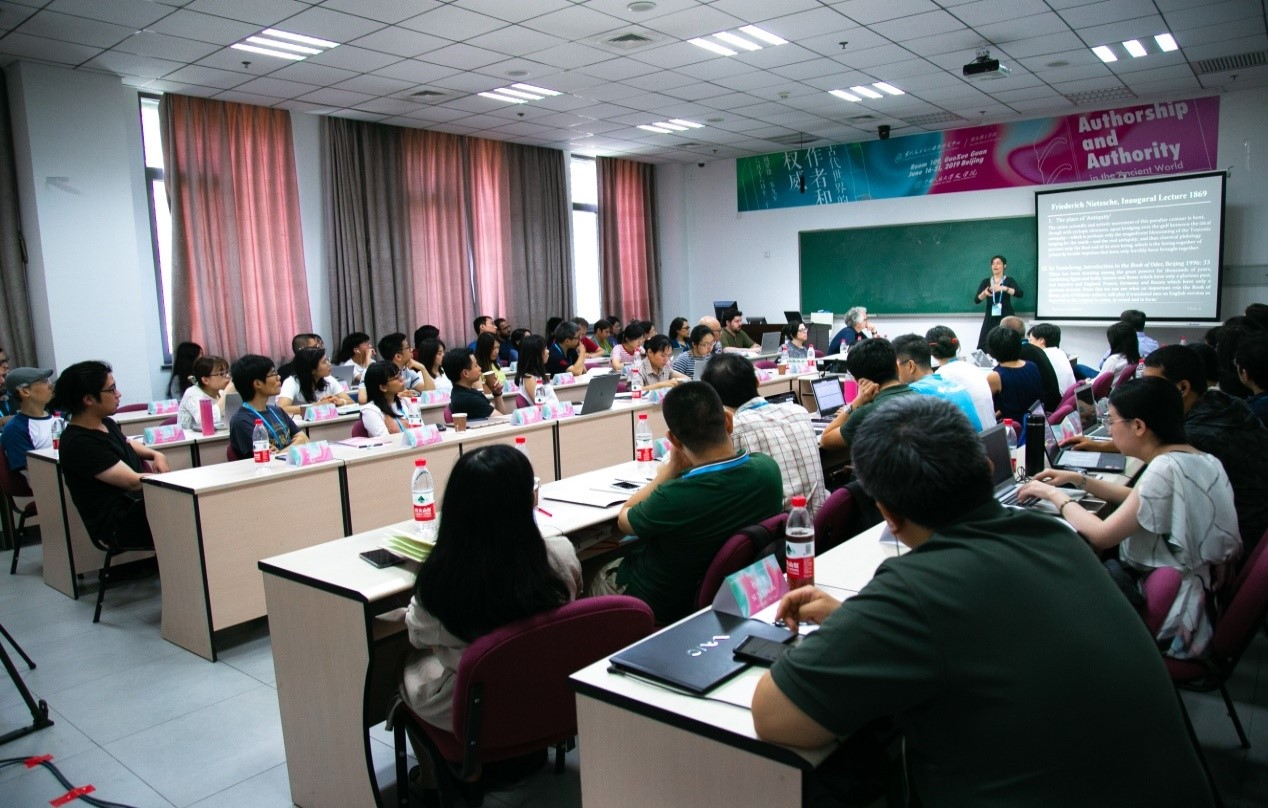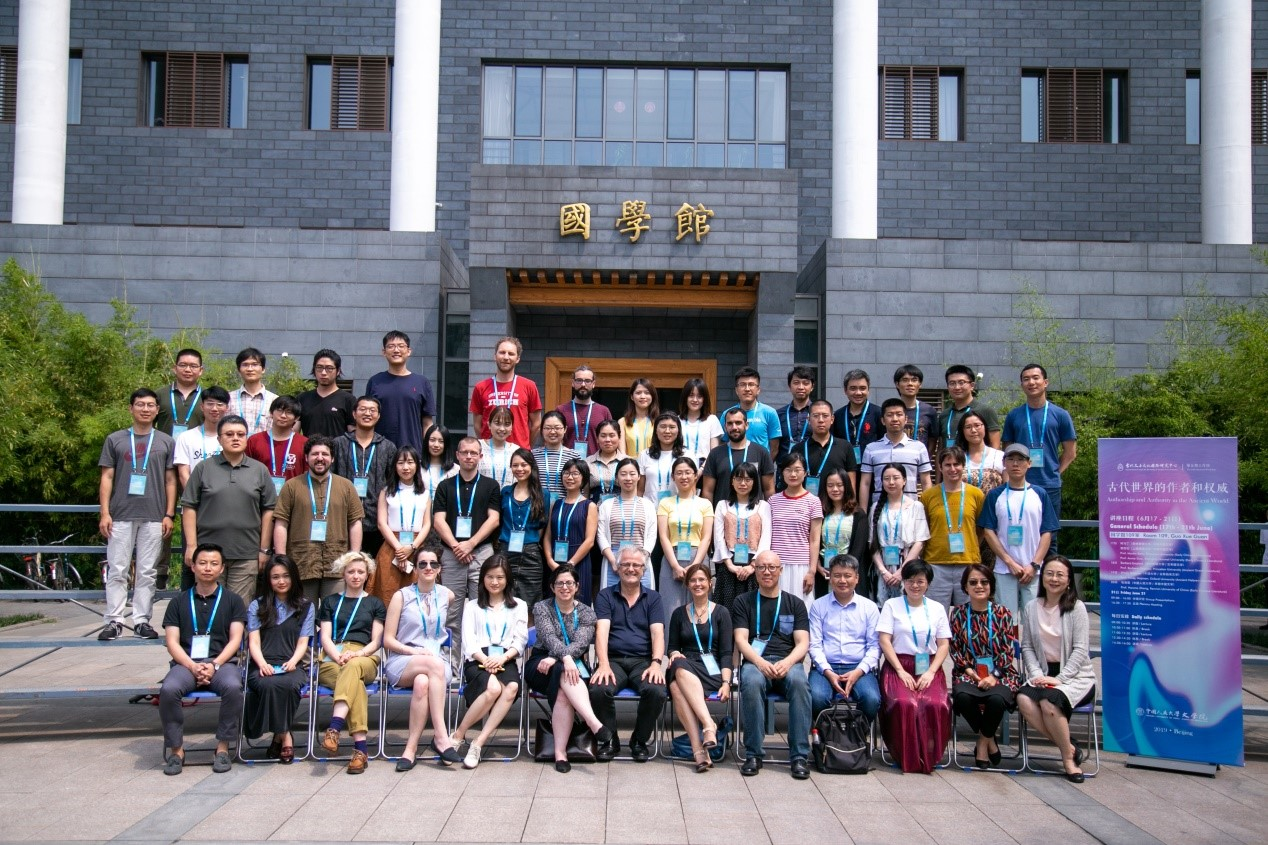On July 17-21, five instructors – Martin Kern (Princeton University), Barbara Graziosi (Princeton University), Hindy Najman (Oxford University), Zhang Hanmo (Renmin University of China), and Guo Xi’an (Shanghai Normal University) – came together with graduate students and young academics from dozens of centers globally to lead lecture sessions and discussions on the topic of “Authorship and Authority in the Ancient World.” Each instructor prepared one day of lectures, with a specific focus on one text culture, early China, ancient Greece, Biblical literature, and medieval Chinese Buddhism, respectively. Each day, the instructor presented their treatment of a particular issue (in some cases, multiple issues) within their respective textual tradition, through close reference to the corpus. In each instance, the analysis was situated within, responded to, and developed an overarching theoretical discussion on the nature and function of authorship.

Over the five days of the workshop, questions of “authorship” irresistibly gave way to the bigger, existential questions of our field, for which this “question of the author” served as something of a refracting lens: what is philology, and what is its purpose? What are the limits and possibilities of interpretation? And what, on top of all that, are we to do with the term “comparativism”?
The four instructors were in agreement that, as the different literary traditions evolved across centuries and millennia, the concept of an “author” expanded far beyond the bounds of a Foucaldian “limiting function” – a purely hermeneutical instrument serving the reader in their quest to derive “sense” in reading. As their traditions took shape, the instructors explained, contingent historical, political, religious, and ideological factors conspired gradually over time to promote “the author” as an eternal and absolute font of text-meaning. As a result, hermeneutical enterprises became increasingly indentured to the pursuit and maintenance of (often only retroactively constructed) author biographies, as the imagined key to the meaning of a text.
Moreover, as the instructors highlighted, this “biography” in ancient text traditions is oftentimes indistinguishable from mythology, sanctifying the author as a godlike Creator of the text, as the central pillar in a complex political cosmology of meaning, or as a passionate martyr for their writing.
These ideas were crystallized through the detailed treatment of paradigmatic examples, including Professor Kern’s discussion of the figure of Qu Yuan 屈原, Professor Najman’s discussion of Moses, and Professor Graziosi’s discussion of Homer – the very name taken to address skepticism towards the mythological and mythologized author in general (the “Homeric question”). Professor Zhang proposed an alternate route to the same end, destabilizing the concept of “authorship” by exploring an equal and other authority function at work in the Buddhist hermeneutical tradition: translatorship. Together, the instructors successfully problematized the idea that text meaning is always mastered by a spectral “originator” figure, interminably displaced from the realm of living readers, scholars, translators, and interpreters.

In problematizing the oppressive functions of “authorship,” our instructors also took care to avoid “killing” the author entirely (per Wolf [1759–1824]), exploring the nuance of the author’s creative, enriching, and illuminating functions. Professor Graziosi, glossing Nietzsche, reminded us that one can eliminate Homer as poet-author of the Iliad and Odyssey at the level of historical fact and nevertheless retain him as an “aesthetic function”; more to this, the former facilitates the latter. As Professor Kern noted, in the exercise of limiting the possibilities of interpretation (la proliferation de sens), the author is brought into play as one discriminating function (le principle d’économie) among many. Foucault’s (1926–1984) insight here is arguably anticipated in the meta-discussion of Thucydides, where the text explicitly posits that the author-persona Thucydides stands to serve as its hermeneutical key.
As the instructors carefully elaborated through references to the theories of Barthes (1915–1980) and Foucault, this scheme of authorship is predicated upon the judgement of one who critically applies “limiting functions” to the text: the reader. This rebalancing of text meaning towards the reader underpinned Professor Najman’s call for the “revitalization of scripture.” As a starting point for this project, Najman called for an honest account of the subjective reader-interpreter’s creative, generative function in their encounter with the text, beautifully glossed by Najman as the mental extension – and revitalization – of Apollo’s partial torso in Rilke’s (1875–1926) poem Apollo.
Finally, the instructors—and here especially Professor Guo Xi’an in her special guest lecture—addressed the question of “comparativism,” which has been at the heart of all five workshops at the International Center for the Study of Ancient Text Cultures to date. The model of reading and readership that took shape through the week’s discussions and reflections insists that comparativism is always implicit, regardless of how many, or how few, text traditions one engages: in every moment of reading, understanding, and interpretation, there is always a minimum of always two elements, two poles, or two Gadamerian horizons: besides the text, there is also a creative, meaning-giving, “authoring” reader. Accordingly, to put into dialogue such diverse traditions China and biblical traditions, Greece and Buddhism represents an activity in seamless continuum with even the most superficially straightforward intra-cultural exegesis. In his closing remarks at the end of the week, Professor Kern once again emphasized the need for all scholars to create a distance to their subject of study, an epistemological move for which the comparative perspective is essential: unless one understands also other traditions in their specific cultural configurations and can defamiliarize what always seems entirely familiar, one’s understanding of one’s own tradition is by definition parochial, limited, and backwards-reaching. Transcending the narrow boundaries of academic departments and their limiting views on singular civilizations is at the heart of the humanities—and has always been.



